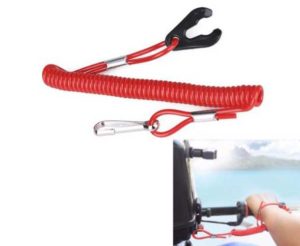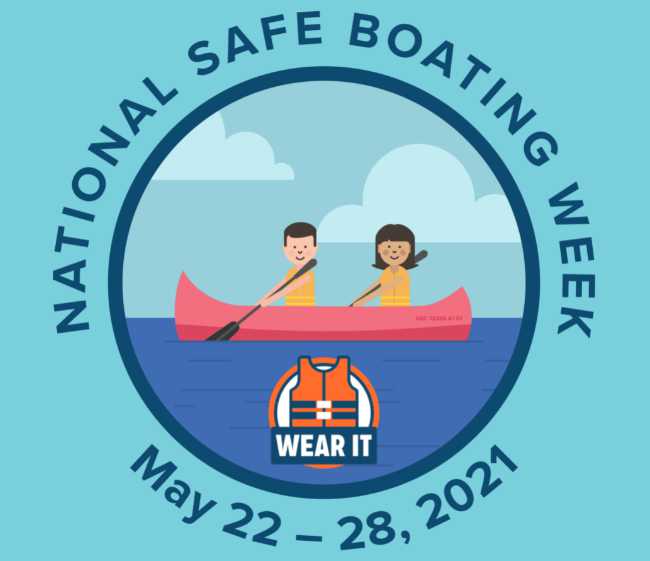
JUNEAU, Alaska – The Coast Guard reminds mariners of a new law requiring recreational boats to use an engine cut-off switch (ECOS) and associated ECOS link (ECOSL). An ECOS is an emergency ignition cut-off device that shuts down the engine if the operator is ejected from the vessel or falls overboard.
On April 1, 2021, the law went into effect requiring operators of recreational vessels with an installed ECOS to use an ECOS link, which is usually a lanyard clipped onto the operator’s person or lifejacket. This law applies to any boats less than 26 feet in length that generate more than 115 pounds of static thrust (approximately 3 horsepower) and were built beginning in January 2020. It also requires operators to use the ECOSL while navigating on plane or above displacement speed.
“With warmer weather, the Coast Guard expects to see an increase in water-related activities,” said Cmdr. Byron Hayes, Sector Juneau response department head. “In the last two months, we’ve experienced two known incidents involving runaway vessels in Alaskan waters. One of those resulted in a death, so we want the public to understand the importance of using engine cut-off switches and an attached link.”
Watchstanders in the Coast Guard Sector Juneau command center responded to a report Wednesday evening of two people in the water after being ejected from a runaway skiff near Spuhn Island. Alaska State Troopers responded to a similar incident in April where two men were ejected from a runaway skiff resulting in one death.
Engine cut-off switches are an important tool to prevent unnecessary accidents, injuries and deaths caused by a recreational vessel operator being unexpectedly displaced from the helm. This includes situations where the operator is ejected from the vessel, which typically leads to a runaway vessel.[content id=”79272″]
“Accidents involving runaway vessels can be extremely dangerous,” said Michael Folkerts, Coast Guard 17th District boating safety specialist. “In situations where the operator is ejected from the boat, the vessel can begin circling the person in the water. They are then in immediate danger of being struck by the boat or the propeller.”
These new requirements will improve safety for all recreational boaters by reducing the potential for propeller injuries from runaway boats whose operator was displaced from the helm and not using an ECOSL.
The Coast Guard Auxiliary is one of many organizations that offer valuable boating safety courses ranging from electronic navigation to boat handling: information on courses in your area can be found at http://cgaux.org/boatinged/. The state of Alaska offers an online boating safety course: information can be found at https://www.boat-ed.com/alaska/.
To the greatest extent possible, your local Auxiliary is accommodating requests for a Vessel Safety Check (VSC). VSCs may not be widely available due to necessary COVID-19 precautions, but the U.S. Coast Guard Auxiliary has put an interactive program on the www.safetyseal.net site that walks a boater through what safety equipment should be carried and what precautions should be taken.
Learn more about Engine Cut-Off Switches at https://uscgboating.org/recreational-boaters/engine-cut-off-devices.php#:~:text=The%20terms%20Engine%20Cut%2DOff,unexpectedly%20displaced%20from%20the%20vessel.
For more on boating safety, visit the National Safe Boating Council at https://www.safeboatingcouncil.org/.
-USCG-






